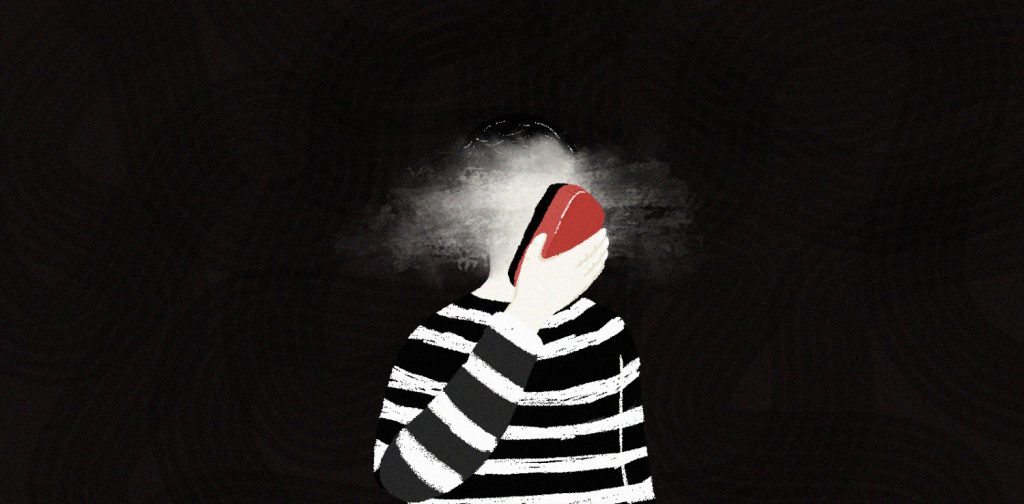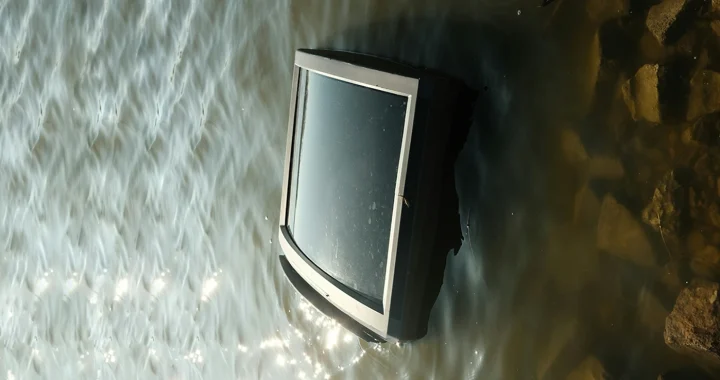Am I Suicidal?

Illustration by Inez Kriya
Disclaimer and trigger warnings: This article talks about suicidal thoughts and suicidal behaviors. This article is written by a survivor, not a mental health professional.
Being at risk of suicide seems like it should be something obvious we can all see, but sometimes it isn’t. It is hard to see from the outside when someone needs help; sometimes, it is also hard to see from the inside when we need help. Identifying a problem then admitting to ourselves that there is a problem is not easy.
There are many reasons for that, ranging from systemic to cultural to personal. Systematically, poor healthcare means a lack of resources and access to professional help. It might not be available, or it might be expensive. Culturally, the stigma that mental health is not real or important is prevalent, along with the belief that people are weak for not being okay. Even when the community is mostly decent about the topic, denial in a person’s support system can be a huge detriment. On a personal level, though, suicidal thoughts and suicidal behaviors are sneaky sometimes.
This article is not meant as a handbook to identify suicidal thoughts and behaviors. I am merely sharing how the same thing can look different on different people or the same person at different times. This is not a one size fits all story.
Suicidal thoughts can mean having a deliberate plan to end your life. They can mean planning something for the end of the week, or after a cousin’s wedding, or when the flower at the balcony blooms. They can go as far as preparing all the necessary equipment and planting lies to avoid suspicion. They can be intense and loud and urgent, or they can mean thinking about all of that without wanting to execute it.
Often, suicidal thoughts are intrusive. I can be happy and enjoying the day with my friends until I suddenly think, ‘Oh, this is nice, but I want to die.’ I can be productive or resting after a long time of feeling fine just to be hit with a reminder that I think dying is a good idea.
Suicidal ideation, for me, is mostly thinking that I don’t want to exist. Back then, it was easy to shrug that off as unimportant because most of the time, it wasn’t like I wanted to kill myself. It was easy to write everything off lightly because I didn’t cut or burn myself, so I wasn’t self-harming. It can be stealthy like that.
At the end of the day, what I wanted was the same: I did not want to live. I prayed that I would go to sleep one day and never wake up because God had hit undo on my entire existence. No mess, no grief. My form of self-harm was how I did not eat for days, and I slept only when I passed out, hoping this was the correct cheat code to stop existing. I was reckless as a pedestrian because I simply did not care if I got run over by a truck while crossing the street, and that was suicidal behavior.
When your religion tells you that death is not the end, it gets ingrained in you enough to think reaching for death is not the release you are looking for. Then you will think it’s not as real as other people’s conditions. You will think you’re making it up. Then you will think there is no problem at all. Then it will lay dormant, untreated, unmanaged, and it may go away—or it may grow.
If you think any of this might fit you, you are not alone. You are not alone, and you deserve help. However small these suicidal thoughts are now, realizing they are something to manage and take care of is a crucial first step.
The next part is tricky. As I have mentioned before, we do not have equal access to professional mental health care. If you have the means, please seek professional help. It’s hard; I know it’s so hard, but please reach out to people around you and ask for help. There are also resources online to learn more about suicide and depression and how to help yourself, such as The Depression Project.
All I can say is this: it’s not going to be like this forever. I don’t know if this will get through to you because I remember thinking, ‘but you don’t get it,’ and I know how hard it is to imagine feeling anything else. Even now, I shy away from the term ‘recovered’ because it’s still there; it pops up every now and then. Now, I am just better armed. Today, I am still surviving it.
Editor: Marlis Afridah

Co-create positive impact for people and the planet.
Amidst today’s increasingly complex global challenges, equipping yourself, team, and communities with interdisciplinary and cross-sectoral insights on sustainability-related issues and sustainable development is no longer optional — it is a strategic necessity to stay ahead and stay relevant.

Nazalea Kusuma
Naz is the Manager of International Digital Publications at Green Network Asia. She is an experienced and passionate writer, editor, proofreader, translator, and creative designer with over a decade of portfolio. Her history of living in multiple areas across Southeast Asia and studying Urban and Regional Planning exposed her to diverse peoples and cultures, enriching her perspectives and sharpening her intersectionality mindset in her storytelling and advocacy on sustainability-related issues and sustainable development.


 Impacts of E-waste Pollution on Animals and Human Health
Impacts of E-waste Pollution on Animals and Human Health  Africa’s Solar Energy Surge: Why 2025 Was a Breakthrough Year
Africa’s Solar Energy Surge: Why 2025 Was a Breakthrough Year  Agrihoods: Integrating Farms and Urban Neighborhoods into Sustainable Communities
Agrihoods: Integrating Farms and Urban Neighborhoods into Sustainable Communities  Women in Waste Management: Asia’s Circularity Runs on Women. Its Policies Still Don’t
Women in Waste Management: Asia’s Circularity Runs on Women. Its Policies Still Don’t  Embracing the Business Value of Sustainability
Embracing the Business Value of Sustainability  American Farmers Call for Government Support Amidst PFAS Contamination
American Farmers Call for Government Support Amidst PFAS Contamination